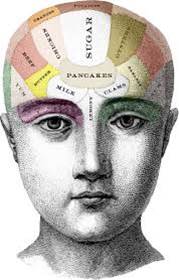
“The food that you eat can either be the safest & most powerful form of medicine or the slowest form of poison.” –Anne Wigmore
I love everything about good food…eating it, growing it, cooking it, reading and thinking about it. As a therapist, I am fascinated by the impact of nutrition on mental health to the extent that I read anything I can get my hands on regarding this topic. So for this blog, I am sharing some of my favorite food and mood knowledge. Enjoy!
For dessert, go to the dark side. Dark chocolate (70% cocoa) can have an acute affect on mood. Cocoa flavanols can help boost mood and sustain clear thinking.
Eat Leafy Greens (Lots of them!)-Leafy greens are a good source of Magnesium. Magnesium “the relaxation mineral”, is crucial to your body running smoothly, helps muscles relax and also calms the nerves by keeping cortisol levels low. It also stimulates production of GABA, a neurotransmitter that eases anxiety and nervousness; and helps you fall asleep. Magnesium is found naturally in green veggies, particularly leafy ones, like Swiss chard and spinach.
Eat Nuts-Snack on a combo of pistachios, cashews, almonds, walnuts, and pumpkin seeds for a powerhouse package of fiber, antioxidants, and unsaturated fatty acids, all of which lower blood pressure. Omega-3 essential fatty acids in walnuts have been linked to reduced rates of depression, the selenium in cashews and almonds has been shown to elevate mood, and tryptophan in pumpkin seeds may help the brain make serotonin. A handful a day is the recommended serving.
Drink Green Tea-Green tea contains an amino acid called L-theanine, which has been linked to reducing anxiety and promoting sleep. Green tea also comes with a jolt of caffeine, so you’ll enjoy a focused calm.
Eat Fatty Fish-Salmon, mackerel, tuna and other fish rich in omega 3s have been shown to calm a stressed mind. Healthy brains and nerve cells depend on omega-3s because the nervous system is made mostly of fat. Omega-3 essential fatty acids are one of the basic building blocks of the brain. Choose wild caught over farm raised-wild caught has a higher omega 3 ratio.
Have Oatmeal for Breakfast-Carbs naturally boost your mood by firing up serotonin production in the brain. Whole grains with more fiber take longer to digest, though, thereby releasing serotonin at a more slow-and-steady pace. Add cinnamon (shown to ease frustration) and a teaspoon of honey (satisfies a sweet tooth and boosts immunity).
Eat Citrus Fruits (And other foods high in C)-A 2002 German study found that a hefty dose of vitamin C (1000mg a day) helped people bounce back more easily from a stressful situation. Both blood pressure and cortisol levels decreased faster in people given a vitamin C supplement than the study participants given a placebo. High vitamin C foods include- bell peppers, dark leafy greens, kiwis, broccoli, berries, citrus fruits, tomatoes, peas, and papayas.
Feed your 100 trillion friends-Your body is colonized by a multitude of organisms that outnumber your cells on a 10-1 ratio. For each human gene in your body-there are 360 microbial ones! Many of these organisms live in your digestive tract and take center stage in every conceivable aspect of your health. No other system in the body is more sensitive to changes in gut bacteria than the central nervous system, especially the brain. Choose foods rich in probiotics-Yogurt, Kombucha, Kimchi, Sauerkraut, Pickles-anything pickled. Eat vegetables, low-sugar fruits, healthy fats-extra virgin olive oil, coconut oil, pasture fed butter, nut butters, protein-pasture raised eggs, wild fish, grass fed meat and wild game. Enjoy coffee, wine, tea, and chocolate all which contain polyphenols which are powerful antioxidants found in plants that support the health of gut bacteria.







